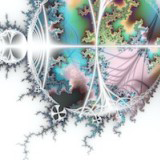Personal Knowledge Management or PKM is the art of taking personal responsibility for the knowledge that you need to refer to in going about your daily life.
It is a skill and discipline similar to what a librarian or museum curator may perform in their role, but differs because personal knowledge management has to reflect your personal view of the world.
PKM is knowledge as YOU need it to be.
There is a journey here. What works for you today, will not work for you tomorrow. As the number of document expands the links between them become richer and there is more to mine for inspiration. There will also be some dark corners - places that have not been visited for some time and may be just forgotten or now stale.
Don't chase the perfect system. All you need is the system that works for you now.
Key Principles of My System
Personal Knowledge Management Systems Must Be Flexible
Any Personal Knowledge Management system must be flexible. It needs to accommodate:
Link to original
- changes in taxonomy - knowledge is not fixed, and certainly our interpretation of knowledge is open to change. That comes from Being a Learner.
- changes in document format - knowledge comes in many forms and it’s frequently a low-value activity to convert from one format to another, unless converting into a searchable format from one that is not searchable.
- local and remote access (and security) - what is the point of creating a system that acts as a second brain if you can’t have it accessible wherever you need it. Remote access does require the need for security.
- new learning about PKM practices - there are new ideas in the PKM space all the time and they can help with looking at knowledge in different ways. Don’t get caught in the trap of rearranging all the existing documents to meet a new system.
- new learning full-stop - the system is at its best when it illuminates new knowledge
Don't Duplicate Public Knowledge
Within a Digital Garden it’s very easy to get caught in the trap of duplicating public knowledge that can be found elsewhere, or is otherwise known.
For example, The Lord of the Rings is made up of Fellowship of the Ring, The Two Towers and The Return of the King. There is no benefit in me re-creating that structure here.
That Andy Serkis starred in the Lord of the Rings movies, and The Batham likewise doesn’t need a mention here.
Another example, I know that my purhcase of LEGO Star Wars - The Skywalker Saga is for both that PlayStation 4 and the PlayStation 5, but you’ll only see it tagged
#game/video-game/playstation-5because that’s the platform I played it on.Recreating public knowledge wastes time and has a lot of overhead to manage; time better spent elsewhere.
Link to original
Tags Are Not Knowledge
Tags, or other similar metadata, added to resources in a Personal Knowledge Management system are not content. They are best used to help you curate resources and can answer questions such as:
- What was written in July 2023? (add a date)
- Where are all the references to books? (add
#book)- What am I currently working on? (add
to-develop)When used as markers for the content of a resource - exactly like keywords - an issue arises where one tag can mean multiple things. Is
#philosophya reference to a note that discusses a philosophy, or is it about philosophy itself.In Tags or Links, Curtis McHale distinguished between
tags,notesand tagnotes. The latter are a flavour of note that summarise broad topics. They are similar to Maps of Content in that they bring together information with more context than a single word. Curtis writes,Tagnotes vs Notes
The difference between
#tagnotesandnotesis that notes are summaries of reading and research I’ve been doing while#tagnotesare the connection points between that research.Tagnotes vs tags
When it comes to
#tagsI use those to set the status of a piece of research in my vault. Something I want to summarize gets#tosummarize. If I want#toreadsomething then it gets that tag applied.I also use them to set the type of content. If I have a note on a specific person that note gets the
#peopletag. A note on an application like OmniFocus would get the#apptag. A note on a book gets the#booktag.In my system, I do not tag notes with markers of what knowledge is within them. If I am tempted to tag with a concept, I’ll find a way to rewrite my text to use a
Link to originallinkinstead.
